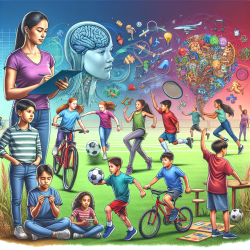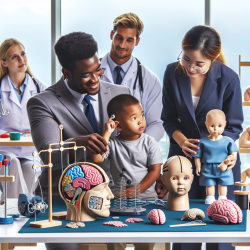Based on a comprehensive review of 21 studies, this meta-analysis found that exercise interventions significantly improve overall executive functions in children and adolescents with ADHD. Specifically, the research revealed:
- Moderate-to-large positive effects on inhibitory control (g = 0.761, p < 0.01)
- Moderate-to-large positive effects on cognitive flexibility (g = 0.780, p < 0.001)
- Chronic exercise sessions with moderate intensity were more effective than acute sessions
For practitioners working with children who have ADHD, these findings offer actionable insights. Here are some strategies to incorporate exercise interventions into your practice:
1. Implement Chronic Exercise Programs
Chronic exercise interventions, which are conducted over a longer period, show greater benefits compared to acute sessions. Design programs that span several weeks to ensure sustained improvement in executive functions.
2. Focus on Moderate Intensity
Moderate-intensity exercises, such as swimming or running, have been shown to be more effective than light or vigorous activities. Aim for activities that keep the children engaged and physically active without causing excessive fatigue.
3. Mix Aerobic and Cognitively Engaging Exercises
Both aerobic exercises (e.g., running, swimming) and cognitively engaging exercises (e.g., ball games, exergaming) have positive effects. A balanced mix can cater to different preferences and keep the sessions enjoyable and effective.
4. Tailor Programs to Individual Needs
Every child is unique. Customize exercise programs to fit individual capabilities and interests. Monitor progress and adjust the intensity and type of exercises as needed.
By integrating these strategies, practitioners can leverage the power of exercise to significantly enhance the executive functions of children with ADHD, leading to better academic performance, improved social interactions, and overall well-being.
To read the original research paper, please follow this link: The impact of exercise interventions concerning executive functions of children and adolescents with attention-deficit/hyperactive disorder: a systematic review and meta-analysis.










